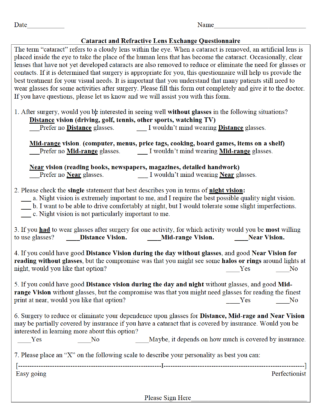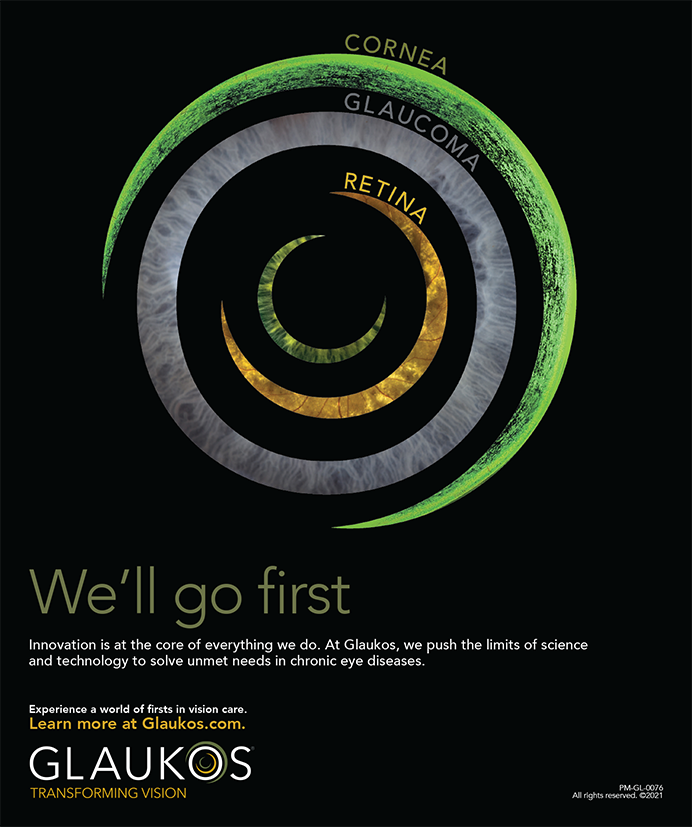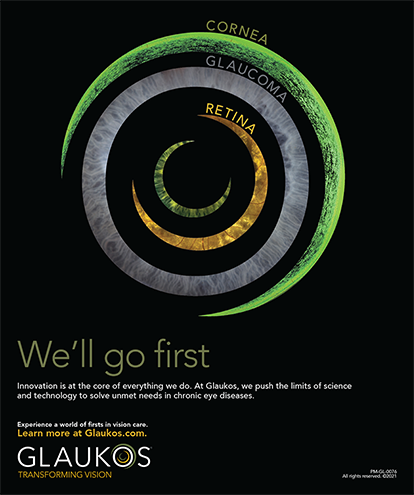
Ophthalmology has provided me with the opportunity to travel widely. Although some of the places I visited have seemed somewhat familiar, others felt very foreign. From the language to the customs and food, having a good interpreter is essential to enjoying the experience; otherwise, it is pretty easy to feel like a cast member on a bad episode of Extreme Cuisine or Parts Unknown.
AT A GLANCE
• Think of yourself as your patients’ travel guide when it comes to discussing premium cataract surgical options.
• By following the four phases of education outlined herein, you can ensure that patients have the detailed information that they need to make a decision that will affect the rest of their lives.
• Better-informed patients are likely to have better outcomes.
What does travel have to do with counseling patients about premium options for cataract surgery? In many ways, for patients, a cataract consultation is a journey into a foreign country. Optics, implants, lasers, and ultrasound are scary and unfamiliar. Patients desperately need an interpreter to distill the information, options, and opportunities down into an easy-to-understand proposition. We surgeons need to keep that in mind if we are to have the type of conversation that will enable patients to make a decision with confidence.

Figure. Dell questionnaire.
FOUR PHASES OF PREMIUM CATARACT SURGERY COMMUNICATION

Patients referred to your practice must have access to the right information before they arrive. This is typically accomplished through a physical brochure and the information on your website. It is difficult to discuss visual goals with a patient who is surprised by his or her options. Getting referring optometrists involved in the conversation before the referral can be especially helpful, because they can give the patient some perspectives on the choices.

Surgical counselors are key to a successful premium cataract practice. At our practice, the surgical counselors talk to every potential cataract patient about the surgical options, including their costs. This approach takes some of the awkwardness out of the conversation with the patient in the lane. We also use a video to explain the basics of cataract surgery, which serves to reinforce the information about the procedural choices. This standardized approach ensures that each patient is at least presented with the options that are available.

It is impossible to recommend a dish if you do not understand the person’s taste preferences. Some people like spicy and savory flavors, whereas others enjoy sweet and sour. The same is true for vision after cataract surgery. It is important to understand the daily tasks, profession, and visual priorities of each patient prior to making a recommendation. Incorporating a standardized form like the Dell Questionnaire (Figure) can be quite helpful. If the patient is new to the practice, it is also important to listen to the referring optometrist for insight, history, and even recommendations.

Medical ethics rightly dictates that patients take charge of their own health care decisions. Those who are educated on their options, however, benefit from the forthright recommendations of their physicians. Therefore, I begin with a high-level discussion of different options based on the patient’s particular situation. I describe both the quality and quantity of vision each surgical option can provide, with the assumption that every patient would like to enjoy as much of both as I can provide given preferences and individual budgets.
Armed with the information about the patient’s visual needs and biometry, I typically feel comfortable making a recommendation of the “good, better, and best” options.
We surgeons must always put the needs of our patients above our own and make the type of recommendation we would for our own family members, free of any financial conflict of interest. This is an extremely high bar of professionalism that should never be crossed. We need to explain the potential for visual complications with each modality, especially when higher-cost options may carry a greater chance of causing unwanted symptoms and requiring postoperative enhancement procedures: “Mrs. Jones, just like a Ferrari, high-performance lenses can require more maintenance.”
CONCLUSION
Patients do best when we can leverage our clinical acumen to make excellent personalized recommendations and our surgical skills to deliver the goods. We must remember to frame the information much like an interpreter, however, because our patients are making a decision that will affect the way they experience the world for the rest of their lives. When we act as educators, advocates, and interpreters, our patients get the information they need from a source they can trust.




